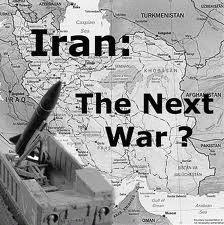Absent the possibility of joining the Curiosity rover on Mars, there's nowhere to hide from the "Bomb Iran" hysteria relentlessly emanating from Tel Aviv and its Washington outposts. Now that even includes third-rate hacks suggesting US President Barack Obama should go in person to Israel to appease the warmongering duo Bibi-Barak[1].
So it's time for something completely different -- and totally absent from Western corporate media; sound Iranian minds rationally analyzing what's really going on behind the drums of war -- regarding Iran, Turkey, the Arab world and across Eurasia.
Writing at the Arms Control Association website[2], Mousavian goes straight to the point; "The history of Iran's nuclear program suggests that the West is inadvertently pushing Iran toward nuclear weapons."
In seven key steps, he outlines how this happened -- starting with Iran's "entrance into the nuclear field," owed largely, by the way, to Washington; "In the 1970s, the Shah [of Iran] had ambitious plans for expanding the nuclear program, envisioning 23 nuclear power plants by 1994, with support from the United States."
Mousavian stresses how, from 2003 to 2005, during the first Bush administration...
"Iran submitted different [nuclear] proposals, which included a declaration to cap enrichment at the 5% level; export all low-enriched uranium (LEU) or fabricate it into fuel rods; commit to an additional protocol to its IAEA safeguards agreement and to Code 3.1 of the subsidiary arrangements to the agreement, which would provide the maximum level of transparency; and allow the IAEA to make snap inspections of undeclared facilities. This offer was intended to address the West's concerns regarding the nature of Iran's nuclear program by ensuring that no enriched uranium would be diverted to a nuclear weapons program. It also would have facilitated the recognition of Iran's right to enrichment under the NPT. In exchange for these Iranian commitments, the Iranian nuclear file at the IAEA would be normalized, and Iran would have broader political, economic, and security cooperation with the European Union. Furthermore, Iran was interested in securing fuel for the research reactor in Tehran and was ready to ship its enriched uranium to another country for fabrication into fuel rods."The Bush administration refused everything. Mousavian recalls "a meeting I had at the time with French Ambassador to Iran Francois Nicoullaud, he told me, "For the US, the enrichment in Iran is a red line which the European Union cannot cross."
So "the West was not interested in solving the nuclear issue. Rather, the West wanted to compel Iran to forgo its enrichment program completely." This could only lead Tehran to "change its nuclear diplomacy and accelerate its enrichment program, as it sought self-sufficiency in nuclear fuel."
"Zero stockpile," anyone?
Fast forward to February 2010. Tehran proposed, "keeping its enrichment activities below 5% in return for the West providing fuel rods for the Tehran reactor. The West refused this offer."
Then, in May 2010, "Iran reached a deal with Brazil and Turkey to swap its stockpile of LEU for research reactor fuel. The deal was based on a proposal first drafted by the Obama administration with Brazilian and Turkish officials under the impression that they had the blessing of Washington to negotiate with Iran. Regrettably, the United States trampled on their success by rejecting the plan; the UN Security Council subsequently passed additional sanctions against Iran."
Every unbiased observer following the Iranian nuclear dossier knows these facts. Another flash forward, to September 2011, "when Iran had completely mastered 20% enrichment and had a growing stockpile, it proposed stopping its 20%-enrichment activities and accepting Western-provided fuel rods for the Tehran reactor. Once again, the West declined and made it necessary for the Iranians to move toward producing their own fuel rods."
Moving on to this year's talks in Istanbul and Baghdad, Mousavian stresses, "with each blockage and punitive Western action, Iran further advances its nuclear program."
And it gets worse; "A comparison of the June 19 statement in Moscow by Catherine Ashton, the EU foreign policy chief and lead negotiator for the P5+1, with her April 14 Istanbul statement reveals a major difference. The P5+1 is now giving more emphasis to Iran's compliance with its international obligations, namely, UN Security Council resolutions, rather than focusing on the country's obligations under the NPT. This is a clear setback from the Istanbul position. It indicates a focus on suspension of Iran's enrichment activities, a demand that has been a deal breaker since 2003."
The bottom line is "not only has the West pushed Iran to seek self-sufficiency, but at every juncture, it has tried to deprive Iran of its inalienable right to enrichment. This has simply propelled Iran to proceed full throttle toward mastering nuclear technology."
(Note: You can view every article as one long page if you sign up as an Advocate Member, or higher).






